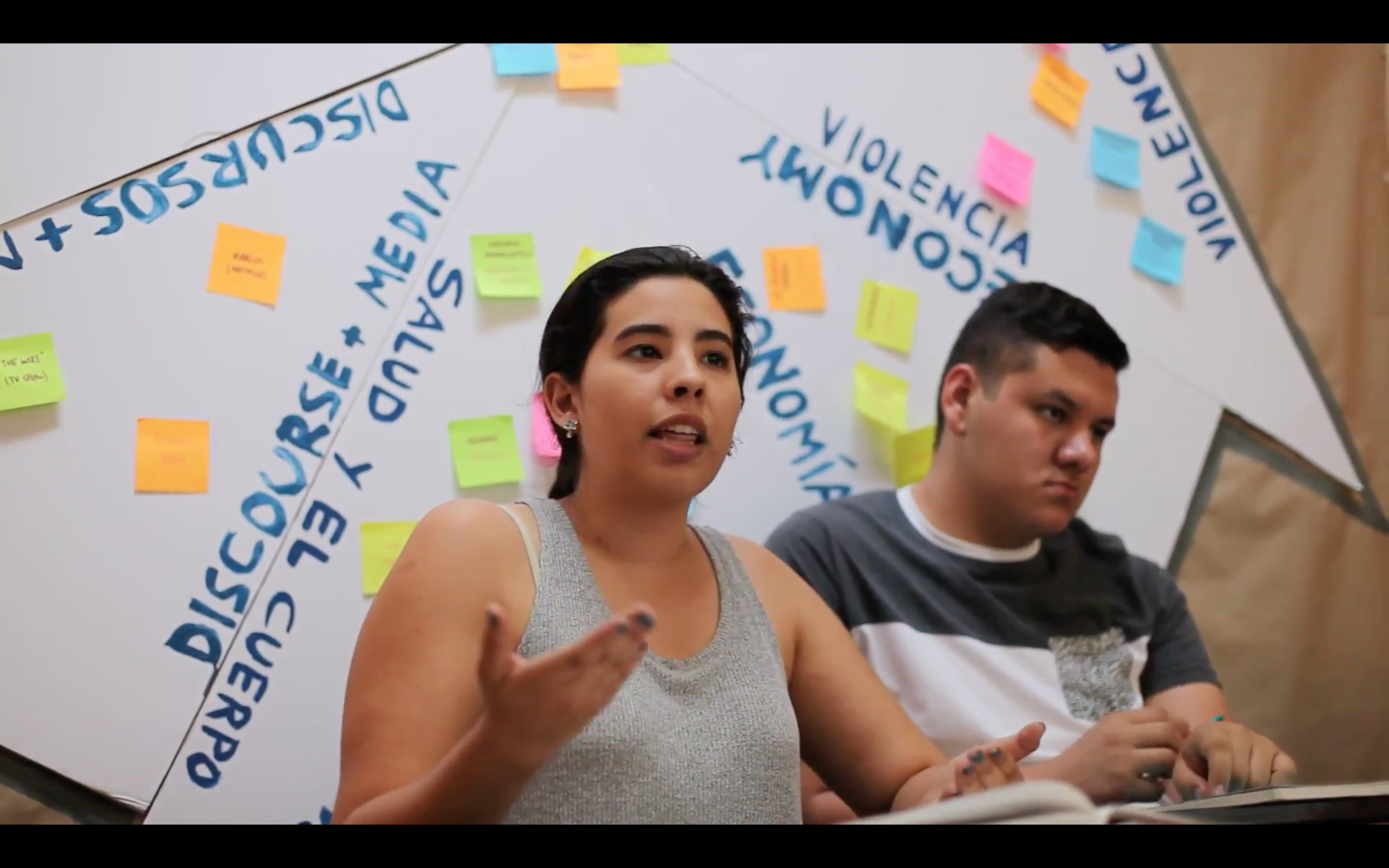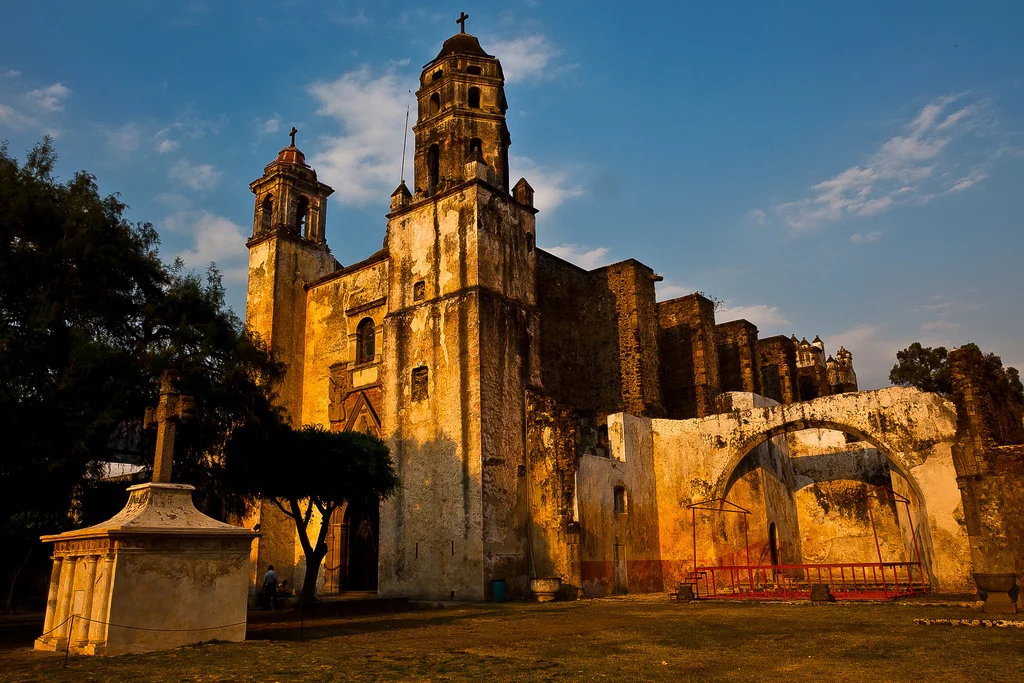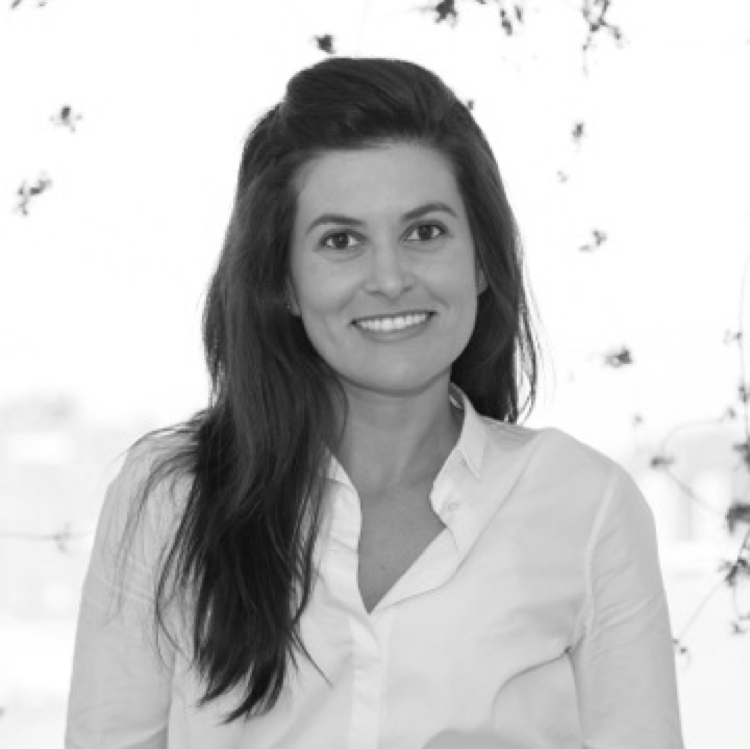
Catalyst is a year-long fellowship for adolescents and educators from across the Americas who are committed to exploring, expressing and advocating their visions of more just and humane drug policies.
Catalyst is a year-long fellowship program for high-school students and their teachers from communities affected by the War on Drugs.
Over the course of the year teacher+student teams from across the Americas will come together both online and in-person to exchange their experiences, build knowledge and generate strategies of resistance.
The fellowship is designed to equip each student-teacher team with:
A critical understanding of the War on Drugs as a social, political and transnational conflict.
Tools to foster intergenerational collaboration.
Skills to launch local artistic, educational or advocacy initiatives of their own design that respond to the negative impacts of the War on Drugs within their communities.
Creative strategies to bring back knowledge about the War on Drugs into their classrooms, schools and wider community.
Opportunities to participate in the wider drug policy reform movement.
Program of Catalyst 2020
For our fourth edition, Catalyst: drugs policy consists of three phases:
During the first phase, high school students and their educators Will sign up in our e-curriculum to acquire basic knowledge about drug policy and the phenomenon called“the war on drugs”. All the participants in this phase will be part of the online Catalyst community.
During During the second phase, the participants who have completed the e-curriculum and have the interest in continue with the fellowship will make teams of 1 student and 1 educator to apply to our in-person incubator during the summer. For three weeks, they will deepen their knowledge and acquire abilities to develop community projects that change the negative consequences of the War on Drugs.
The elected sudents in this phase will be part of the fellows community. Meanwhile, the elected educators will be part of the educational agents community.
In the third phase, the teams of students and educators will go back to their communities to launch their projects and share their knwoledge with the rest of their people.
If you are interested in participating or nominating a team of students and educators, please reach us at team@catalyst-catalizador.org

““I would define Catalyst with three words: inspiring, revolutionary and motivating. Catalyst was a watershed moment in my personal, academic and professional development as a woman. It opened my eyes and inspired me in unimaginable ways. Being a part of Catalyst has been one of the greatest and most valued privileges I have ever been afforded.” ”
Phase 1: E-learning (February - May 2020)
Since February, all the students and educators who applied to Catalyst will gain a basic knowledge of the War on Drugs through our e-learning course. With the generous support of the Enlight Foundation, Catalyst is excited to be collaborating with the Crew Platform on developing and launching our e-learning materials and online community.
EDUCATOR FELLOWS (20 HOURS)
Through a 6 module course, educator fellows will gain a basic knowledge of drugs, drug policy and the history and politics of the War on Drugs as it has been waged across the Americas, while learning innovative pedagogical strategies for bringing a difficult topic like the War on Drugs into the classroom.
STUDENT FELLOWS (25 HOURS)
Through a 10 module course, student fellows will gain a basic knowledge of drugs, drug policy and the history and politics of the War on Drugs as it has been waged across the Americas. Student fellows will also be guided through the initial steps of articulating the community project that they will work on for duration of the fellowship.
In the event that fellows do not have regular access to computers or internet, an off-line version of the e-learning curriculum will be made available to them.
Registry
You couldn’t sign up before february 21st? Don’t worry, our e-curriculum will be still available.
Register now and wait our invitation to start last week of March. Any question, contact us.

“This experience was about more than discussing the historical components of the War on Drugs. It was a life experience that offered empathy, knowledge, and understanding.”
Phase 2: In-person Incubator (Summer 2020)
The students and educators, who completed the e-learning course, could apply to participate in the in-person incubator.
STUDENT FELLOWS
Dates: Summer, exact dates TBD
Location: Tepoztlán & Mexico City, Mexico
Over the course of their three-week incubator, students will deepen their knowledge of the War on Drugs and learn how the conflict has affected the Hemisphere. Student fellows will build community organizing and advocacy skills via workshops, arts programming and guest lectures from local activists. Once the educator fellows arrive, student fellows will work collaboratively with them to further develop and refine action plans for the community projects they will launch upon their return home.
EDUCATOR FELLOWS
Dates: Summer, exact dates TBD
Location: Tepoztlán & Mexico City, Mexico
Over the course of their two-week incubator, educator fellows will work in parallel to their student fellows to deepen their knowledge of the War on Drugs, to explore how the Catalyst curriculum can be adapted to their specific educational setting and to learn how to be more effective adult allies to their students. During collaborative sessions, each educator will work with their student to develop and refine an action plan for the community project that they will launch upon their return home.
Both incubators will culminate in a collaborative exhibition in Mexico City featuring the work generated by both student and educator fellows
The Catalyst 2020 incubators will take place in Tepoztlán, Mexico. Tepoztlán is a small and charming colonial town an hour's drive south from Mexico City. Known for its tranquility and safety, Tepoztlán is home to an ancient archeological site, a beautiful ex-convent and many breathtaking hikes.
The student incubator will take place at Casa Cueyatlan, a comfortable, gated facility with ample green space, a swimming pool, a common eating area and four residential buildings. Male and female participants will be housed in different buildings. Gender non-conforming students will be accommodated according to their preference. The location of the educator incubator is TBD, but will be in close proximity to the student incubator.
During the last weekend of the program, fellows will travel to Mexico City to present their final exhibition to the public and to take in some of the city's rich cultural landscape. From the time that students are met by facilitators at the airport upon their arrival in Mexico they will be under adult supervision.









“I’m glad that my son attended Catalyst. Since his return, I’ve noticed that he is more dynamic and more open to sharing his knowledge with others. It makes me happy to hear about his experiences and all the new people he met in Mexico. ”
Phase 3: Community Project Implementation (2020 - 2021)
After the in-person incubators, student-teacher teams will return to their communities and launch the community projects they developed in Mexico.
Educator fellows will experiment with adapting portions of the Catalyst curriculum to their classrooms and developing new lessons plans using the skills they honed during the incubator.
All fellows will join an active and dynamic online community that will facilitate keeping in touch with their peers, providing updates on their projects and sharing information and opportunities to get further involved with the drug policy reform movement.
Ongoing support will be provided to fellows upon their return home in the form of additional e-learning modules, webinars, speaking opportunities, access to seed grant funding, etc.

“I support and encourage my daughter’s involvement in anything that helps her become a better, more tolerant, caring and inclusive person and that engages her in the creation of a better society. Participating in Catalyst was precisely such an opportunity for her. ”
The Catalyst Team
Theo is co-founder and co-director of Catalyst. He is an alumnus of the Mahindra United World College of India, holds a bachelors degree in Neuroscience and Comparative Literature from Columbia University and received a masters degree from Cambridge University in History and Philosophy of Science. Theo has worked as a facilitator for a youth radio program and as an educator at an after-school community gardening program in New York City. He is currently based in Mexico City.
Gerardo Contreras is non-binary and executive director of Catalyst. S/he is program officer of the feminist organisation Equis: Justice for Women. Gerardo studied Public Policy in Center of Research and Teaching in Economics (CIDE), where s/he was research assistant of the Area of Sexual and Reproductive Rights. S/he was fellow of Global South at the Colombian organisation Dejusticia in the Gender Studies Area. Gerardo has published at regional journals and write a monthly column in the digital magazine Quintaesencia. Gerardo is a graduate of Catalyst 2017.
Diana is an Assistant Professor in the Department of Educational Policy Studies at the University of Wisconsin, Madison. Her research examines the interplay of armed conflict, peace building, and education in Latin America. She extends her research work into curriculum development and teacher engagement initiatives, in order to translate difficult knowledge about war into opportunities for social change. She teaches courses on education in emergencies, forced migration, and international development. Since 2017, Diana is the curriculum leader of Catalyst.
Born and raised in Mexico City, Camila Ruiz Segovia was the co-director of Catalyst. An alumna of the United World College of the Adriatic, she also holds a bachelors degree in Political Science and Latin American and Caribbean Studies from Brown University. She is studying her master degree in the Geneva Academy of Humanitarian Law and Human Rights. Camila has a background in human rights and security policy in Latin America. She is an advocate for drug policy reform and has participated in community efforts to bring an end to the War on Drugs in Mexico.
Liza is a recent graduate of CIDE’s Public Policy program and community engagement leader of Catalyst. She has extensive experience teaching and facilitating workshops with youth. She has worked as research assistant in themes of Public Administration and drug policy. Her interest are urban sociology and urban planning politics. She has travelled and lived in various parts of the Americas. Liza is well-equipped to serve and engage the diversity of Catalyst community. She speaks fluent Spanish and English, and basic French. Liza enjoys interaction with nature, music, dancing and photography.
Lorena is a Psychologist and holds a Master's degree in education at the Universidad de Los Andes in Colombia. She has worked supporting students with special needs in primary education and internationalization in higher education. Likewise, his experience has focused on the implementation and evaluation of educational innovation projects that use information technology tools as the main strategy to promote learning, both in primary and higher education. Since 2018 he works with Catalyst in the development of the virtual course or e-curriculum.
Emiliano Cabrera Rocha
Emiliano is a Bolivian-Mexican educator and artist interested in the political and aesthetic relationships between people and territory. He holds a BA in Industrial Design, worked as a strategic design consultant with a diverse array of institutions, organizations and agencies from the public sector. He worked as a university teacher at CENTRO. Emiliano is currently leading the development of Catalyst: Land Defense and Climate Justice in the Amazon and preparing to start his Master in Latin American Studies at University of Cambridge, where he will research the political history of road construction in the Bolivian Amazon.
Guiet Zuun Ortiz López
Guiet is a feminist psychologist and holds a Bachelors Degree from the National Autonomous University of Mexico. She specializes in gender issues, human rights and psychotherapy with a focus on gender and respect for sexual diversity. She collaborates with civil society organizations in the delivery of workshops, presentations, trainings, monitoring of public policies, orientation, operation and coordination of projects, accompaniment, and emotional containment. She is currently an independent consultant on issues of integral security, self-care and collective care for human rights defenders.
Founders
Theo Di Castri - Benjamin Fogarty Valenzuela - Nataya Friedan - Atenea Rosado Viurques
2017 Team
Aida Conroy - Theo Di Castri - Benjamin Fogarty-Valenzuela - Nataya Friedan - Diana Rodriguez Gomez - Atenea Rosado Viurques - Camila Ruiz Segovia
2018 Team
David Aristizabal - Ana Cureño - Melina Davis - Theo Di Castri - Nataya Friedan - Marco Guagnelli - Serena Hughley - Suleica Pineda -Justin Oswald - Rebeca Roa - Diana Rodriguez Gomez - Camila Ruiz Segovia - Guiet Zuun
2019 Team
Camila Ruiz Segovia - Melina Davis - Theo Di Castri - David Aristizabal - Guiet Zuun - Diana Rodríguez Gómez - Emiliano Cabrera - Gerardo Contreras Ruvalcaba - Lorena Henriquez
Our Story
Catalyst grew out of a series of conversations between a group of friends from across the Americas. Albeit for different reasons and from different disciplines, our university careers had lead us to study drugs, drug users, drug policy and drug related violence. Looking back on the drug education we had received as teenagers, we shared a common frustration about the lack of information and space we had been given to grapple with the full complexity of the issues that surround drugs and drug policy.
Why had it taken us getting into university to access the histories and the critical analyses of the War on Drugs that had finally helped us begin making sense of the ways in which drugs operated within our different communities? Why did our drug education focus purely on considerations of individual use without including analysis of the sociopolitical dimensions of drugs, drug users and the policies that govern them? Why had we not been encouraged to think about the transnational drug supply chain and the effects of our governments' drug policies upon different parts of the world?
We set about imagining the drug education curriculum we wished we had been taught when we were in high school--a curriculum grounded in social justice; a transnational curriculum that provides students with a framework to understand seemingly disparate phenomena in different parts of the world as connected; and a curriculum that moves beyond moral dogma and taboo to give young people a space to ask honest and difficult questions about a topic that is often off-limits. The result was Catalyst.
CONTACT
Please don't hesitate to get in touch with us with any questions or concerns. We are also always on the look out for collaborations with schools and teachers who are interested in working with our curriculum. Likewise, if you are interested in mentoring a Catalyst student, drop us a line.








